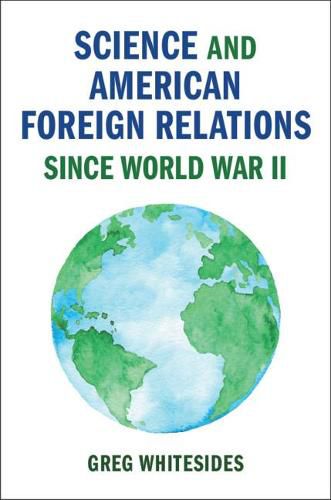Readings Newsletter
Become a Readings Member to make your shopping experience even easier.
Sign in or sign up for free!
You’re not far away from qualifying for FREE standard shipping within Australia
You’ve qualified for FREE standard shipping within Australia
The cart is loading…






The sciences played a critical role in American foreign policy after World War II. From atomic energy and satellites to the green revolution, scientific advances were central to American diplomacy in the early Cold War, as the United States leveraged its scientific and technical pre-eminence to secure alliances and markets. The growth of applied research in the 1970s, exemplified by the biotech industry, led the United States to promote global intellectual property rights. Priorities shifted with the collapse of the Soviet Union, as attention turned to information technology and environmental sciences. Today, international relations take place within a scientific and technical framework, whether in the headlines on global warming and the war on terror or in the fine print of intellectual property rights. Science and American Foreign Relations since World War II provides the historical background necessary to understand the contemporary geopolitics of science.
$9.00 standard shipping within Australia
FREE standard shipping within Australia for orders over $100.00
Express & International shipping calculated at checkout
The sciences played a critical role in American foreign policy after World War II. From atomic energy and satellites to the green revolution, scientific advances were central to American diplomacy in the early Cold War, as the United States leveraged its scientific and technical pre-eminence to secure alliances and markets. The growth of applied research in the 1970s, exemplified by the biotech industry, led the United States to promote global intellectual property rights. Priorities shifted with the collapse of the Soviet Union, as attention turned to information technology and environmental sciences. Today, international relations take place within a scientific and technical framework, whether in the headlines on global warming and the war on terror or in the fine print of intellectual property rights. Science and American Foreign Relations since World War II provides the historical background necessary to understand the contemporary geopolitics of science.